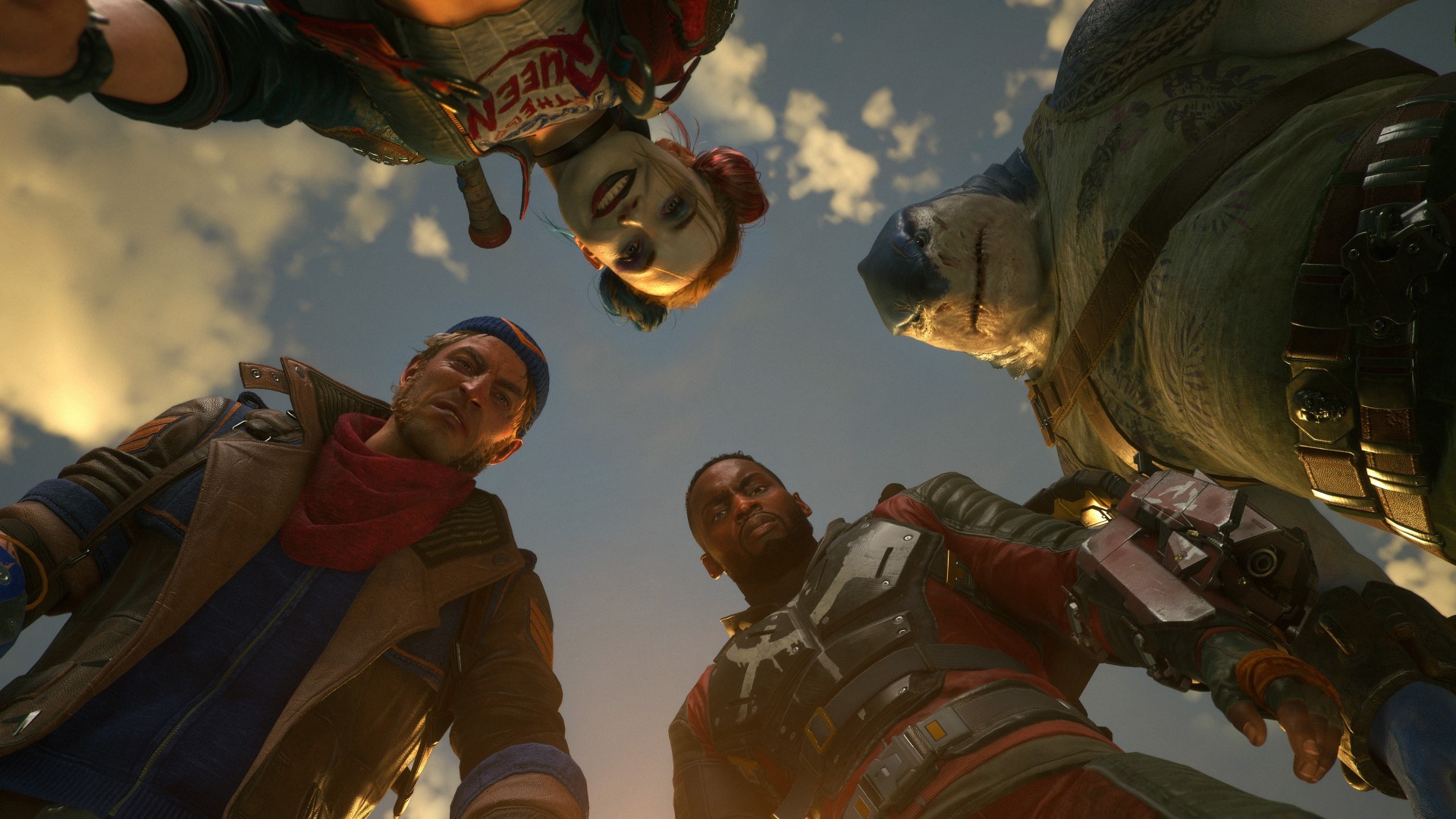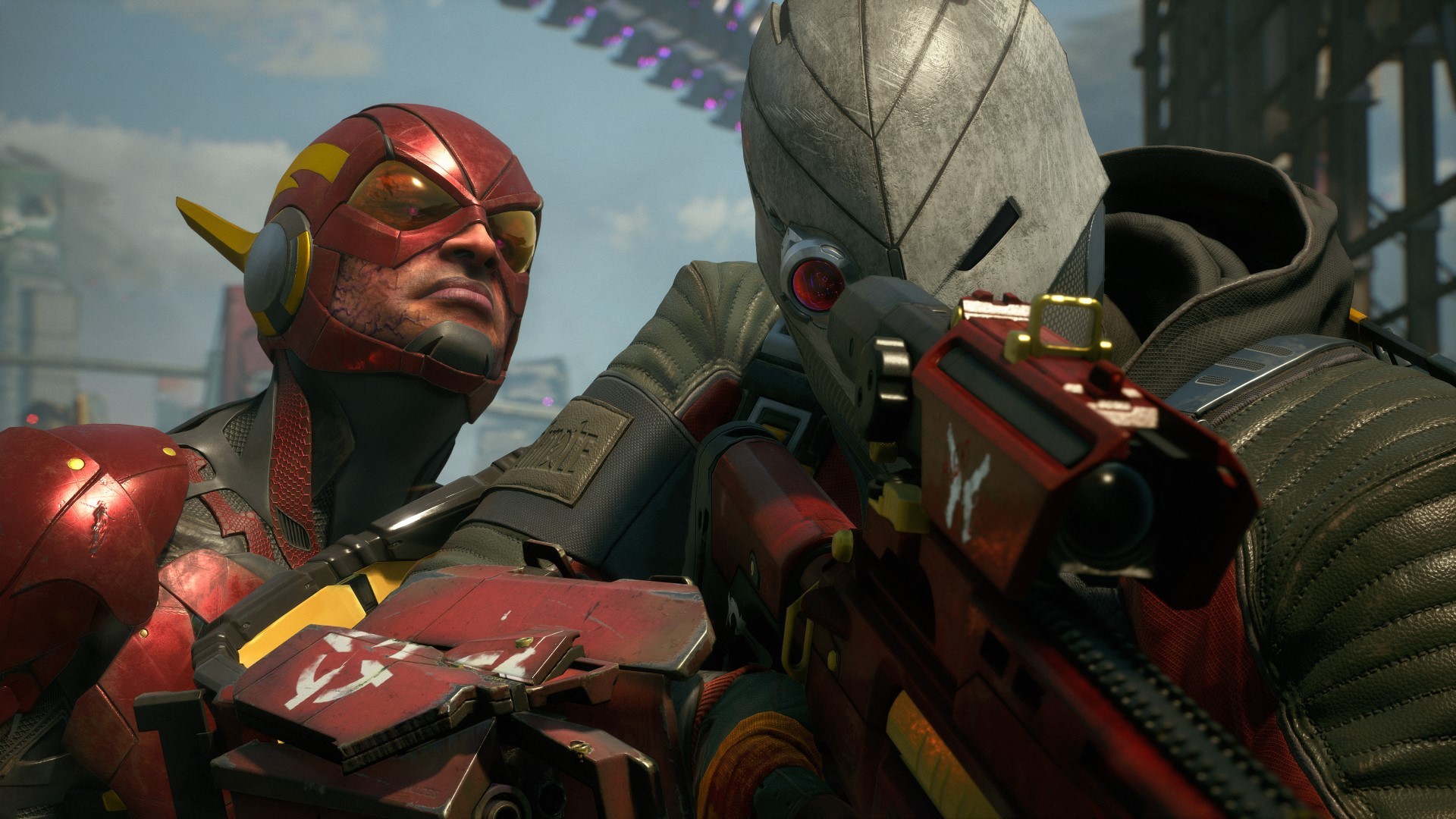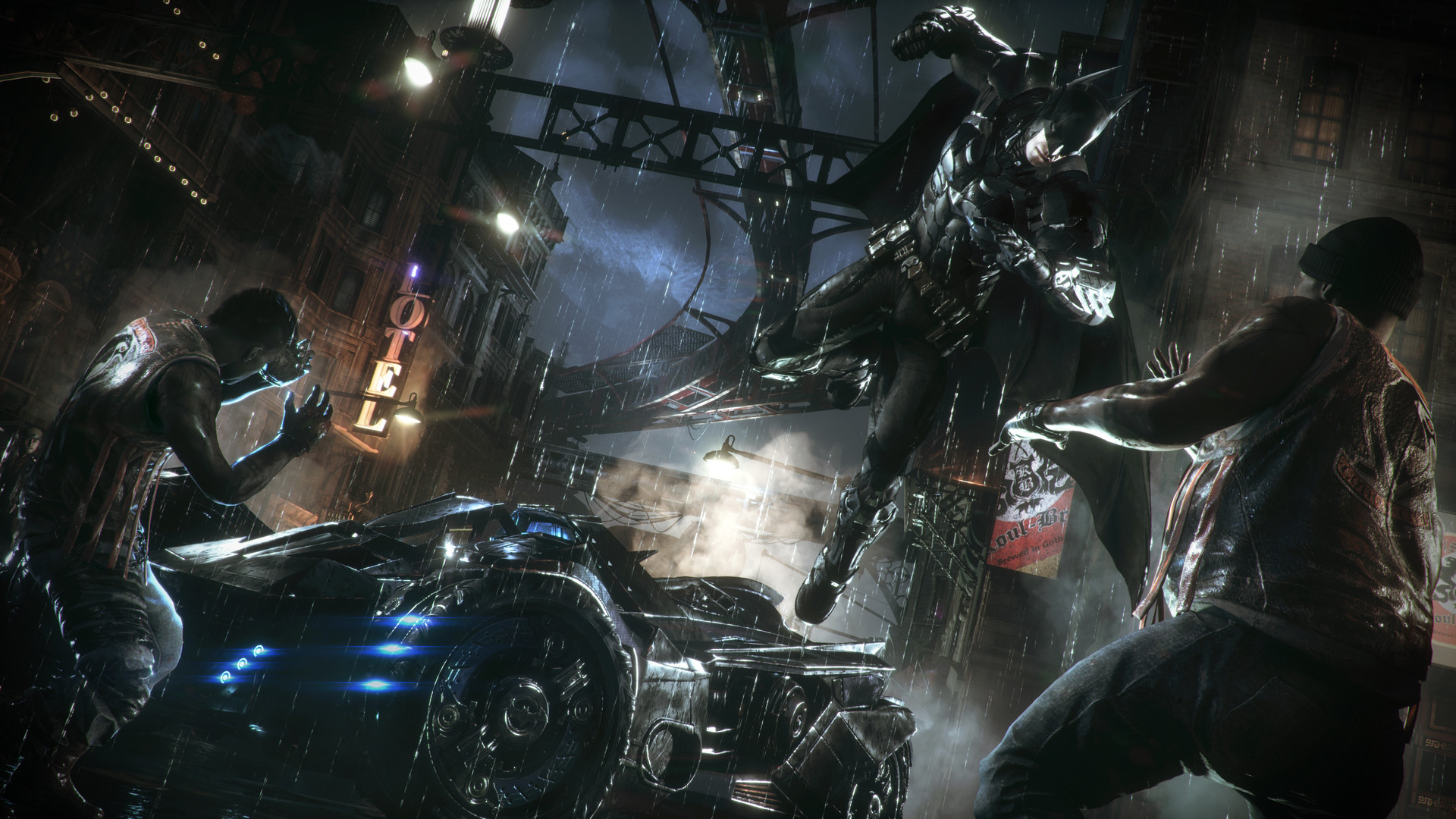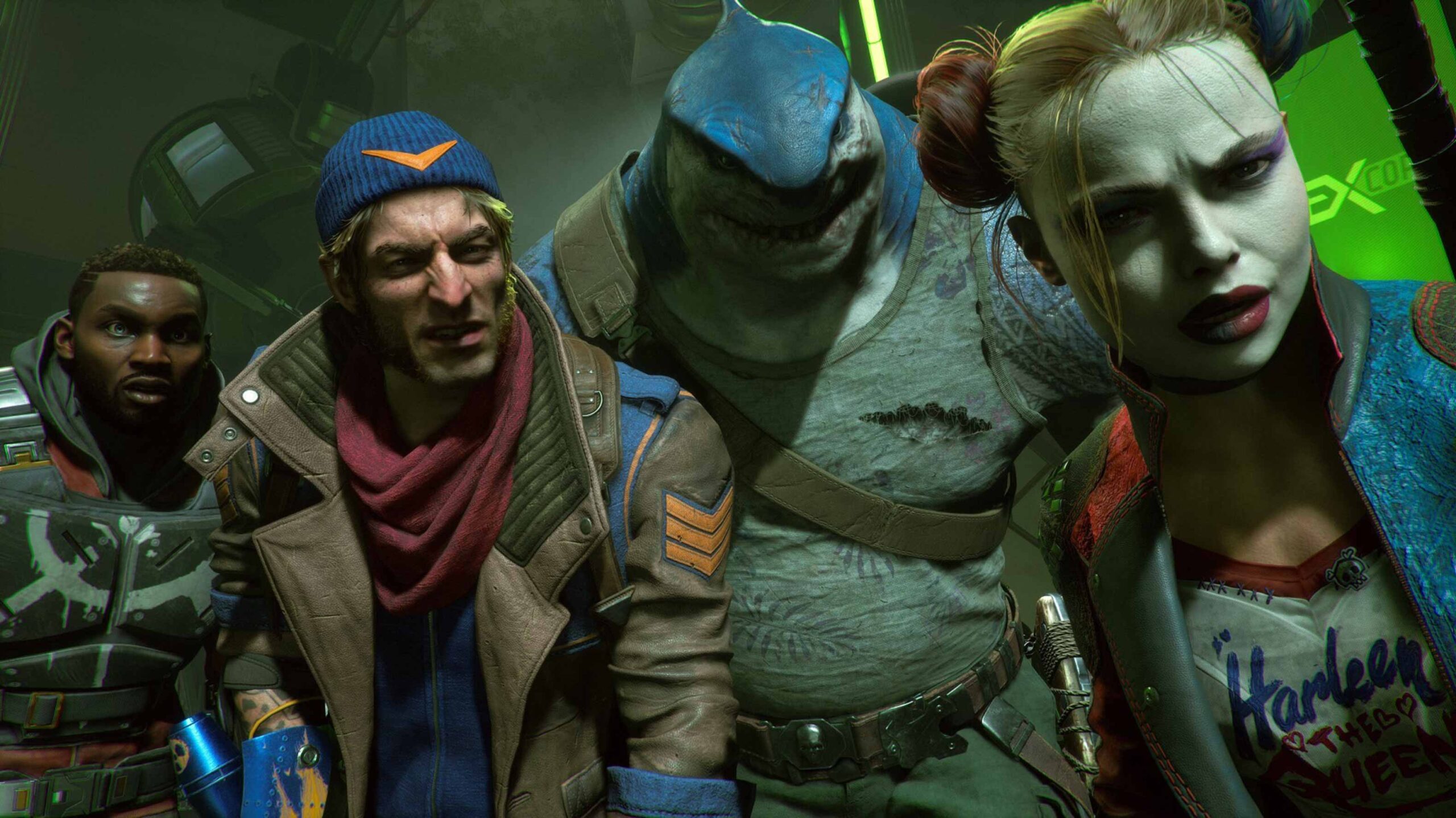
Generally, previews for video games are fairly positive.
For one, companies no doubt (try to) prepare only the best parts of a game to showcase and ensure they’re as well-polished and presentable as possible. On top of that, there’s an expectation going in that you’re only seeing an unfinished slice of a work-in-progress, so you’ll at least try to be optimistic or find things to praise. While some of the more cynical or toxic internet dwellers will (erroneously) say this is all just because media and content creators are “paid off,” the reality is you never want to condemn a game based on only a small part you’ve seen or played.
I say all of this because the recent previews for Warner Bros.’ Suicide Squad: Kill the Justice League have been some of the most mixed or downright negative I have ever seen. Considering the DC Comics game hails from WB-owned Rocksteady, the studio behind the beloved Batman: Arkham trilogy that set the bar for superhero games, there’s been a lot riding on Suicide Squad. Set after the events of Arkham Knight, Suicide Squad allows players to team up with one another or go solo as Harley Quinn, Deadshot, King Shark and Captain Boomerang as they infiltrate Metropolis to eliminate Braniac-controlled Justice League members.
However, word of mouth on the game hasn’t been pretty after WB flew a bunch of media to Los Angeles this month to try it out. “We played it and didn’t like it,” reads IGN‘s rather blunt preview headline. According to Eurogamer, the game sees Rocksteady’s “trademark world-building held back by trend-chasing.” Similar lukewarm opinions can be found on the likes of GameSpot and VideoGamesChronicle.
Admittedly, some previews have been fairly positive, like those from Game Informer and GamesRadar, but even then, common complaints pertain to repetitive missions, uninspired shooter combat for its colourful supervillain cast, a largely barren open-world Metropolis and messy UI. To be clear, I haven’t yet played it myself, so these are purely second-hand accounts and observations, which don’t paint a pretty picture.
While Suicide Squad has been facing an uphill battle since it was revealed way back in August 2020, this is the first time people have actually gotten to play a sizeable chunk of the game. Soon after, WB also lifted NDA restrictions against members of the public discussing their impressions of the alpha, seemingly to get more positive buzz amid the mixed previews. And sure enough, at least some of those who have tried the alpha seem to be more enthusiastic about the game.
Nonetheless, it doesn’t bode well at all for a game to receive such a mixed reception at the preview stage, especially one that’s a live service and, therefore, will be continually built upon and monetized. If people are already growing tired of the “looter shooter” gameplay loop in just a few hours, how will they feel over a full campaign, let alone future content updates?
It also feels painfully reminiscent of what we’ve seen time and again with other companies. BioWare Edmonton (Mass Effect), Crystal Dynamics (Tomb Raider), Arkane (Dishonored) and Platinum Games (Bayonetta) are just some examples of studios that made beloved single-player games then unsuccessfully pivoted to live service games (Anthem, Marvel’s Avengers, Redfall and Babylon’s Fall, respectively).
On paper, the idea of a live service makes sense. With AAA games being so insanely expensive, companies want something that will recurringly return on that investment. The problem, however, is that the live service market is just so oversaturated. Because juggernauts like Fortnite, Call of Duty and Grand Theft Auto Online remain ever-popular, everyone and their mother wants a piece of that pie. It’s why those aforementioned games flopped, and even the likes of Destiny 2 are struggling.

BioWare went from some of the most beloved single-player RPGs of all time to the much-maligned Anthem. Image credit: EA
And these are games that actually got past the finish line — that’s to say nothing of those that were scrapped or have yet to be released, like Ubisoft’s long-delayed Skull & Bones. The biggest example of this is PlayStation, a company whose bread and butter has always been quality single-player games like The Last of Us and God of War. After acquiring Destiny maker Bungie, Sony ambitiously — and, arguably, misguidedly — went off to pursue ten (!) live service games.
Meanwhile, it was having difficulty getting out just one long-gestating multiplayer game, The Last of Us Online, which was finally cancelled last month. Naughty Dog even admitted that trying to go big on an online title would have taken away too many resources from its single-player teams. It was a tacit admission that studios best known for making single-player games probably shouldn’t shift to multiplayer titles — at least, not without knowing what they’re getting into.
All of this is to say that the writing has been on the wall for Suicide Squad: Kill the Justice League for some time. Of course, it could be released on February 2nd and somehow blow everyone away, but even then, how will it fare in such a crowded market? Considering it’s been in development since 2017 (via Bloomberg), it’s hard to imagine the game performing well enough to make back its money. And since Warner Bros. bafflingly wants every one of its properties to become live services — even though its last big game, Hogwarts Legacy, was the best-selling game of 2023 — it’s concerning about where else it might be headed.
It’s all rather depressing, to be honest, and I take absolutely no pleasure in writing any of this. I adore Rocksteady’s Arkham trilogy; it’s what solidified Batman as my second-favourite fictional character after Spider-Man. I’ll even go to bat (pun intended) any day of the week for the polarizing Arkham Knight, a fantastic game that tells an all-timer — and largely underappreciated — Batman story. That Suicide Squad: Kill the Justice League is the late, great Kevin Conroy’s final performance as Batman makes this hurt all the more. Even if a live service isn’t my cup of tea, I certainly wasn’t rooting for this to fail. And to be clear, this also isn’t meant to be a direct attack against Rocksteady itself. No one sets out to develop an underwhelming game, especially when games are so hard to make in ways that most people don’t understand.
It is interesting that these previews all came out the same week that reviews for Ubisoft’s Prince of Persia: The Lost Crown dropped. That was another game that had a lot of people wary at first, but unlike Suicide Squad: Kill the Justice League, previews were far more positive. Ultimately, those who played the final product came away absolutely in love. In fact, I called it Ubisoft’s best game in years both because of its own merits and due to the developer having doubled down on uninteresting live service titles in recent years. For a lot of people, myself included, I think it was just refreshing to get a tight Metroidvania single-player experience instead of yet another expensive live service.
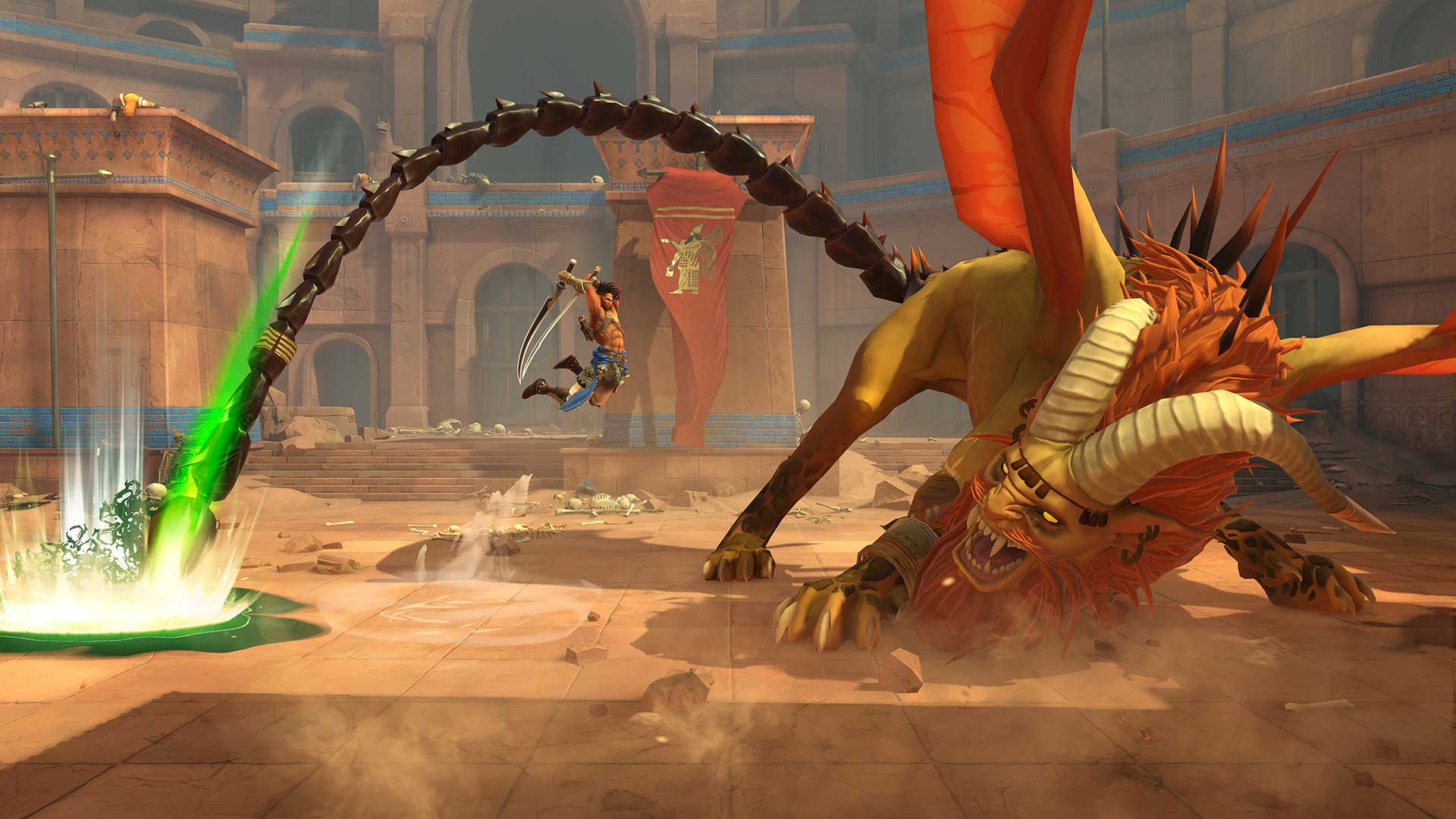
The best game of the year so far, Prince of Persia: The Lost Crown, was refreshingly not a live service game. Image credit: Ubisoft
It’s easy to see how Ubisoft might have wanted the first Prince of Persia in nearly 15 years to be a multiplayer game, just like how even Assassin’s Creed is being turned into a live service, but thankfully, developer Ubisoft Montpellier was able to focus on delivering a top-notch single-player experience. Last year’s Assassin’s Creed Mirage also performed especially well for Ubisoft, and that’s no doubt due to it being a pared-back and relatively lower-budget game versus its predecessor, the bloated, 100-hour-long Valhalla.
And so, I fear it’s too late for Suicide Squad: Kill the Justice League, although I’d love to be wrong. If nothing else, though, I hope we don’t have to keep seeing “celebrated single-player studio making live service title,” because, well, we’ve seen how that usually turns out.
Header image credit: Warner Bros. Games
MobileSyrup may earn a commission from purchases made via our links, which helps fund the journalism we provide free on our website. These links do not influence our editorial content. Support us here.

